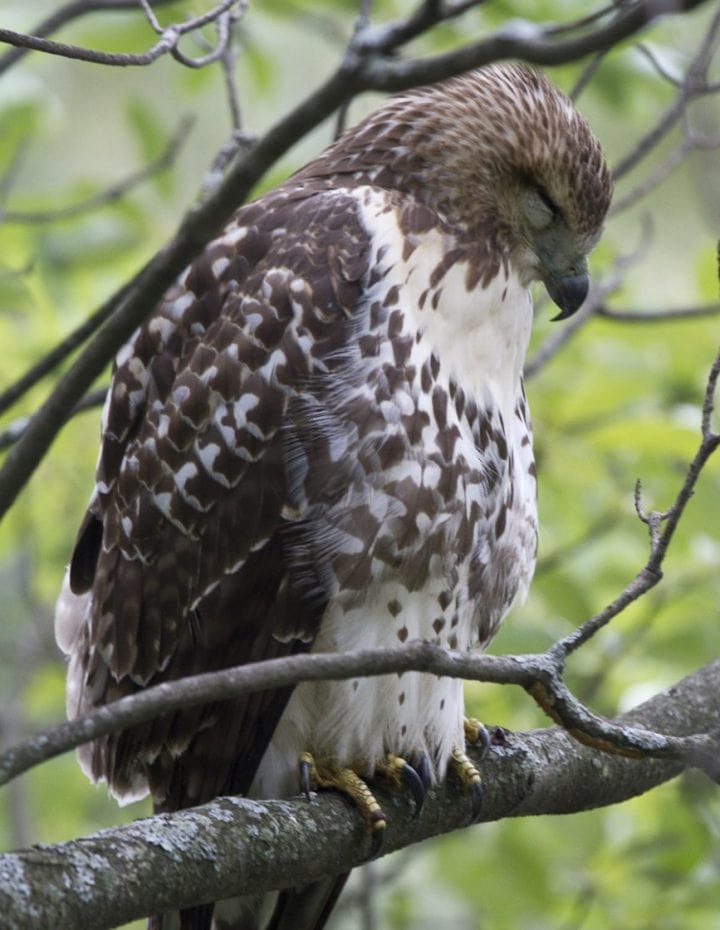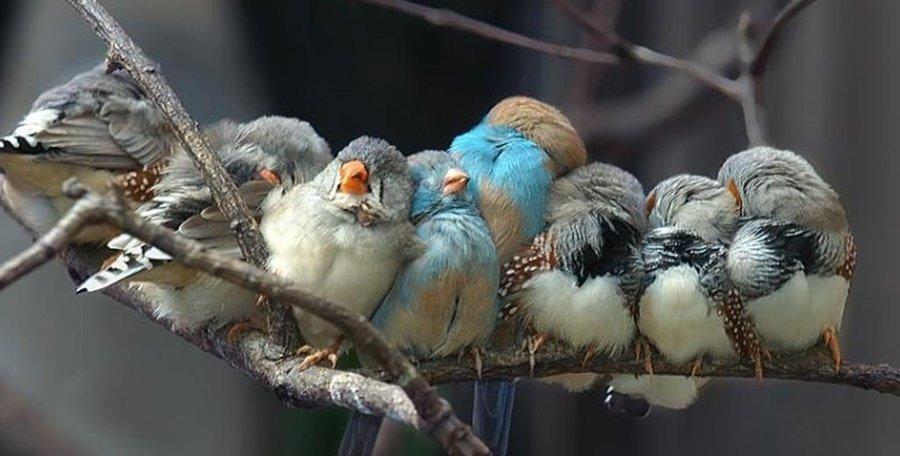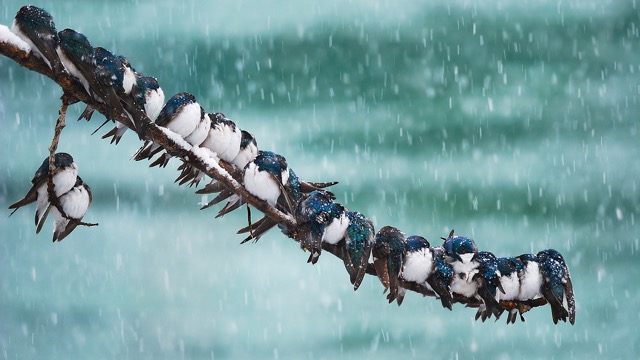Where Do Birds Sleep At Night
Where do birds sleep at night? Birds can be observed foraging on the ground, fluttering among trees, and perching on tree branches throughout the day. When the last rays of sunlight depart, all birds, except nocturnal birds such as owls, migrate.
So, Where do birds sleep at night? Typically, birds rest and sleep at night in secure locations. A songbird’s ideal sleeping location is out of sight, high in the branches of trees, or obscured by thick vegetation. In addition, many small garden birds sleep or roost in big groups in bushes and trees or even find a tree cavity to shelter themselves from predators.
Aside from that, it is not uncommon to see waterfowl resting on the coast or in the water. You may encounter an owl perched high in a tree. This article will briefly address some of your most often asked topics, such as ” Where do birds sleep at night?” And what do birds do during the night? Continue reading, as we will attempt to answer all your questions immediately!
Do Birds Sleep At Night

The answer to the question “Do most birds sleep at night?” is yes; most birds do. However, it isn’t easy to execute, as birds utilize a variety of ways when they need to rest. Maximum birds are diurnal. It indicates that birds are up and active during the day but sleep at night. However, many nocturnal birds, often known as birds of prey, do not sleep at night. These include night herons, owls, and nighthawks.
You may have also witnessed nocturnal birds in flight. This is because they hunt at night and sleep till daylight. During the day, these birds congregate in a safe location to rest.
Where Do Birds Rest During The Night
While sleeping, birds are highly susceptible to attack by predators. Therefore, carefully selecting where they will spend the night is vital. Well, most birds, including small garden birds, are known to sleep perched high in trees or in large tree cavities. They may even assemble in a limited area during a chilly, windy night.
You may also provide a birdhouse for the birds in your garden, serving as a safe and comfortable home. Also, remember to offer them some of their preferred delicacies, such as bird suet! Sleeping ducks, geese, and other waterfowl are floating on the water while wading birds like herons and flamingos stand in the water.
The fascinating aspect is that swifts and frigatebirds spend nearly their whole lives in flight and sleep on the wing. Sounds unbelievable, right? In addition, a 2016 study revealed that most of the time, half of their brains are asleep, while REM sleep lasts only a few seconds. One could call this a power sleep.
How Do Birds Sleep

Like other creatures awake during the day, birds spend most of the night sleeping. However, birds must carefully select their sleeping method to survive the night, employing distinctive strategies that warn and protect them from predators.
Typically, the majority of birds choose nests to sleep in at night. In this manner, they can deny the hunter access to resources they would ordinarily have. These spaces also provide insulation against the cold. In addition, tree canopies, dense thickets, and dead trees are natural roosting locations for these birds.
Wading birds like herons, flamingos, etc., spend the night submerged in water. If a predator approaches from behind before entering the water, the splashing sounds and wave vibrations serve as an immediate warning. In addition, geese, ducks, and other waterfowl sleep while floating on the water’s surface. They also utilize the exact alert mechanism that wading birds exploit.
These birds also frequently float in big flocks when they sleep, which provides them with a significant advantage in terms of predator access. In addition, little birds sleep perched in trees, typically near the tree trunks.
Nocturnal Vs. Diurnal
Most birds are diurnal. This indicates that they are awake and most active during the day but sleep at night. Passerines, gulls, shorebirds, and most raptors are diurnal.
In contrast, nocturnal birds, including owls, nighthawks, frogmouths, and night-herons, are most active at night. They graze, preen, hunt, care for their young, and engage in other survival-related behaviors during the darkest hours of the night.
Occasionally, you can observe diurnal birds that are generally peaceful and quiet during the night so they can engage in other activities. At this time, they may be traveling or looking for partners.
Where Do Birds Spend The Winter Nights

During the winter, birds such as Blue Jays, cardinals, and finches roost in dense vegetation to keep warm, while some finch species, such as the Common Redpoll, dig tunnels in the snow to huddle together. On the other hand, woodpeckers and chickadees sleep in small tree cavities and man-made structures, such as nesting boxes and chimneys, to keep warm and avoid predators.
On freezing winter evenings, when the wind howls, it is normal to be anxious about the survival of your wild birds. However, do not worry, my friend. Typically, birds employ various strategies to stay safe and warm during cold winter nights.
Their feathers are superb insulators, and even exposed regions, like their feet, contain a complex network of blood veins that prevents them from freezing. Additionally, birds use another method to keep themselves warm. On winter evenings, some create air pockets with their wings to shelter themselves from the cold.
Furthermore, most birds can perceive body temperature better than humans. The average temperature approaches 105 degrees Fahrenheit. This enables them to be active throughout the coldest nights.
Conclusion
Where do birds sleep at night? Observing your feathery companions in your backyard early in the morning and late in the day can offer instantaneous pleasure. Their stunning and vibrant appearance can even brighten a cloudy day. That is calming to the eyes.
Honestly, when birds thrive, people thrive. Though it may be easier to discover most birds during the day, bird watchers can take steps to safeguard the safety of many of the tiniest birds every night by learning where they sleep at night.
According to an adage, the day’s birds always return in the evening. Typically, birds are highly disciplined and develop heightened awareness with time.
